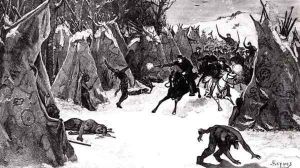Kappes, Alfred Paintings
Alfred Kappes was an American artist, born in New York City in 1850. He was a notable figure in the American art scene during the late 19th century. Kappes displayed an early talent for art, which led him to pursue formal education in the field. He studied at the National Academy of Design and later at the Cooper Union for the Advancement of Science and Art, both prestigious institutions in New York City.
During his career, Kappes worked in various mediums, including oil painting, watercolor, and etching. He was known for his genre paintings, which depicted scenes of everyday life with a particular focus on African American subjects. This was a distinctive aspect of his work, as few artists of his time paid such close and respectful attention to the lives of African Americans. His works are characterized by their realistic detail and nuanced portrayal of his subjects, often highlighting the dignity and humanity of individuals within their societal context.
Kappes also worked as an illustrator for popular magazines of the time and was a respected teacher. He taught at the Cooper Union, where he had previously studied, and his teaching influenced a generation of young artists. Unfortunately, Alfred Kappes' life and career were cut short when he died in 1894 at the age of 44. Despite his premature death, Kappes left behind a legacy that continues to be recognized for its artistic and cultural significance, particularly in the realm of American genre painting and the dignified representation of African American life in the post-Civil War era.
